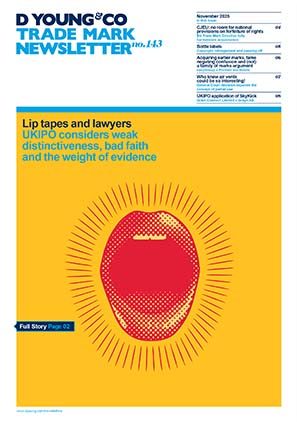Location, vacation, revocation? General Court sides with US hotel on targeted advertising for genuine use
In a win for businesses targeting consumers in the EU, but providing services elsewhere, the General Court has annulled a Board of Appeal non-use revocation which “wrongly confused the place of provision of the service with the place of use of the mark”.
Background
Standard International Management LLC’s (the applicant’s) trade mark for hotel and ancillary services in class 43 was revoked in its entirety by the EUIPO, in the first instance decision. Standard International Management’s appeal to the Board of Appeal was also dismissed on the basis that the evidence was insufficient as their hotel and ancillary services were provided in the US. The Board of Appeal wasn’t swayed by the evidence that Standard International Management had targeted consumers in the EU with advertisements and offers for sale of those services, provided in the US.
The Board of Appeal’s argument was that the trade mark was not registered for advertising, booking, travel agency, or sale(s) services. Therefore, the advertisements and offers for sale were not relevant.
General Court decision
The General Court however accepted Standard International Management’s argument that the Board of Appeal wrongly assessed the evidence, finding that use should not be limited solely to the acts of provision of the goods or services it covers. As long as the relevant goods/ services were the subject of advertisements and offers for sale, the evidence should factor into the assessment of genuine use.
This distinction becomes especially pertinent where the act of provision is in a different location to the act of advertising. The General Court found that: “The Board of Appeal erred in not distinguishing between the place of those provisions of services and the place of use of the mark. Only the latter is relevant to examination of the genuine use of an EU trade mark.”
The evidence
The types of evidence dismissed by the Board of Appeal but accepted by the General Court included:
- Advertisements and promotional campaigns aimed at EU customers.
- Reservations made directly by customers and through travel agencies based in the EU.
- Invoices addressed to customers resident in the EU.
- A bookings portal accessible to EU customers via Standard International Management’s website.
- Google analytics figures showing traffic to Standard International Management’s website.
- Printouts from a website referring to various hotel services and equipment offered and used by customers, particularly in the EU.
- Articles focusing on awards and prizes received.
Targeted advertising
Activities constituting use of a mark, for infringement purposes, include offering for sale and advertising. Therefore, those acts must also be relevant for establishing genuine use, as long as they occur in the relevant territory.
Standard International Management argued that the principles in Pammer and Hotel Alpenhof (C585/08 and C144/09) L’Oréal and Others (C324/09) and AMS Neve and Others (C172/18) were applied by analogy and that “proof of use of a mark by a website which, even if it were accessible internationally, is intended for consumers in the European Union, constitutes use of a mark within that territory”. The General Court agreed that evidence of advertisements and offers for sale of hotel and ancillary services, rendered in the US, but targeted at consumers in the EU, should not have been excluded.
The General Court focused on whether the use was consistent with the essential function of a trade mark, concluding that: “Even if the applicant were to supply goods or services outside the European Union, it is conceivable that the applicant would make use of that mark in order to create or preserve an outlet for those goods and services in the European Union.” As a result, the Board of Appeal’s decision was annulled and returned to the EUIPO for reconsideration.
In short
This decision confirms that the place of provision of a service and the place of use of a trade mark should not be confused. This aligns the concept of genuine use with the types of activities protected by trade mark ownership, including advertising and offering for sale.
This case should assist service-based businesses, like hotels or restaurants, where the services are provided at a fixed physical location outside of the EU. However, convincing evidence will be required to establish clear targeted advertising and offers for sale of services rendered elsewhere, to consumers within the EU.


